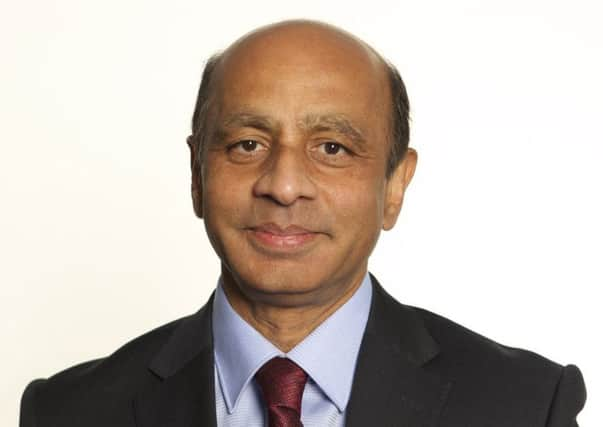New Crawley medical service will give people quick access to a GP


Currently many people complain that they cannot get an appointment to see a doctor for up to three weeks.
Now Crawley Clinical Commissioning Group, which is responsible for sourcing and paying for medical care in the town, says it is taking action.
Advertisement
Hide AdAdvertisement
Hide AdIt aims to launch a new service by the autumn so that people can get a doctor’s appointment within 24 hours.
Clinical chief officer Amit Bhargava said that the new service would complement existing services at GP surgeries in the town and at Crawley Hospital’s Urgent Treatment Centre which is open 24 hours a day, seven days a week.
“We are very much aware of people who are concerned about getting appointments to see a GP,” he said.
A number of GPs currently work at the hospital but Dr Bhargava said in addition to that it was planned to offer another service where people could get primary care, “but we have to make sure we don’t duplicate services and create confusion.”
Advertisement
Hide AdAdvertisement
Hide AdMeanwhile, Bewbush Medical Centre is to move to bigger premises following a deal with the clinical commissioning group and Crawley Borough Council. The number of patients cared for at the centre has soared over recent years from 4,000 to 7,000.
In a gradual shake-up over recent years, more people are now receiving specialist medical services - such as dermatology, ultrasound and ear, nose and throat treatment - at GP surgeries, rather than in hospital.
The majority of Crawley Clinical Commissioning Group’s annual £160 million budget goes on paying for patients’ hospital care.
But fewer people are now being admitted to hospitals in the area because of an increase in ‘community care.’
Advertisement
Hide AdAdvertisement
Hide AdAmong other initiatives, this includes pioneering ‘social prescribing’ being trialled at four local GP surgeries. This is a partnership between West Sussex County Council, Crawley Borough Council and 86 voluntary organisations in Crawley to give emotional and social support to people to help them avoid developing further medical problems - and keeping them out of hospital.
“It is not rationing care,” said Dr Bhargava. “It is the right care for the right person at the right time. I have said it before: we will not cut services until we have cut waste.”
He said that the clinical commissioning group now wanted to see an improvement in the care of cancer patients, with earlier diagnosis; improve health and social care integration; recruit more medical staff; improve the care of people with physical and learning disabilities, along with those with mental health problems, and for children under the age of two.